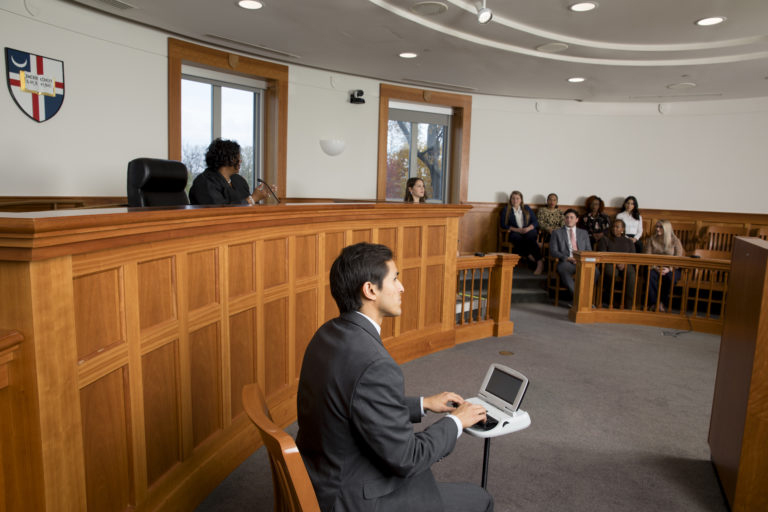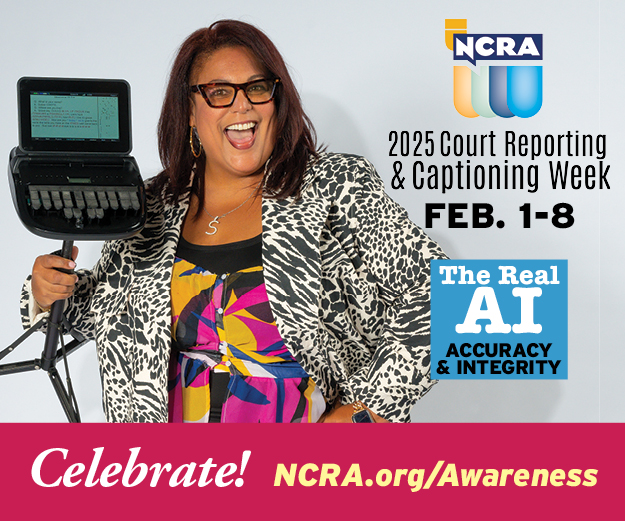What You Must Learn About real-time court reporting in Today's Legal Landscape
What You Must Learn About real-time court reporting in Today's Legal Landscape
Blog Article

The Future of Court Reporting: Advancements and Patterns Shaping the Market
As you discover the future of court reporting, you'll notice a shift driven by innovation and innovation. Real-time transcription and AI applications are improving just how lawful process are recorded. With remote depositions acquiring traction, the landscape is evolving swiftly. It elevates questions regarding the role of court press reporters and the skills they'll need moving on. What does this mean for specialists in the area? The answer could surprise you.
The Impact of Artificial Knowledge on Court Coverage
As artificial knowledge continues to evolve, it's reshaping the landscape of court coverage in ways you could not expect. AI can analyze huge amounts of lawful text, assisting you identify appropriate criteria and enhance instance preparation.
Moreover, AI can improve the prep work procedure by providing anticipating analytics, which can help you expect test outcomes based upon historic data. This isn't almost replacing tasks; it's concerning enhancing your abilities. With AI handling routine tasks, you can concentrate more on your core duties, such as ensuring accuracy and giving crucial legal understandings. Welcoming these changes can position you as a forward-thinking expert in a changing sector.
Real-Time Transcription: Enhancing Precision and Efficiency
Real-time transcription has actually reinvented the court reporting process, making it less complicated than ever for you to record accurate records instantly. With advanced innovation, you can currently provide instant records throughout hearings or depositions, guaranteeing that all parties have access to necessary information immediately. This immediacy not just boosts the general performance of the lawful procedure yet additionally permits you to focus on the dialogue, instead of clambering to capture up.
As you use real-time transcription, you'll discover a significant decrease in mistakes, many thanks to automated proofreading tools that flag inconsistencies as you kind. Furthermore, clients appreciate the capacity to examine transcripts instantaneously, allowing quicker decision-making and smoother procedures. By welcoming this technology, you're not simply enhancing your workflow; you're establishing a brand-new standard in court coverage that focuses on accuracy and performance. This forward-thinking method positions you at the center of the progressing legal landscape (court reporting).
The Rise of Remote Depositions

With the expanding demand for flexibility in legal procedures, remote depositions have become a game-changer in court reporting. You can currently participate in depositions from anywhere, eliminating travel time and costs. This benefit enables you to concentrate on what really matters-- preparing your situation.
Remote depositions use sophisticated modern technology, making it possible for real-time communication and record sharing. You can involve with witnesses and lawyers effortlessly, making particular that every person continues to be linked no matter their physical area. This strategy not just conserves time yet additionally expands your pool of expert witnesses, as geographical barriers become less of an issue.
As remote depositions gain popularity, it's essential to adapt to this new standard. Acquaint on your own with the needed tools and protocols to guarantee a smooth experience - court reporting. Embracing this innovation can give you a competitive edge, allowing you to navigate the ever-evolving landscape of lawful procedures successfully
Digital Courtrooms: Transforming the Legal Landscape
As you step right into the world of digital court rooms, you'll discover how virtual hearing modern technology is reshaping lawful procedures. This change not only makes accessibility simpler but likewise boosts transcription accuracy, guaranteeing every word is captured properly. Embracing these innovations can significantly boost the effectiveness of the lawful process.
Virtual Hearing Innovation
While the traditional court setup has actually long been an icon of justice, the rise of digital hearing technology is improving how legal process are carried out. You'll locate that these digital platforms supply unmatched access, enabling individuals to sign up with from anywhere. This flexibility not only conserves time yet also lowers prices related to traveling and logistics. Picture having the ability to offer your instance without tipping Source foot in a physical courtroom. Furthermore, online hearings can boost engagement, enabling witnesses and experts to supply testament without the restraints of location. As you adapt to these changes, you'll notice that online hearings maintain the integrity of the legal process while accepting advancement, eventually changing the method justice is served in the modern-day world.
Improved Transcription Precision
Boosted transcription accuracy is revolutionizing the lawful field, making court process a lot more trustworthy than ever. With innovations in speech recognition technology and AI-driven devices, you can expect to see a substantial reduction in transcription errors. These advancements not only record every word spoken yet additionally account for subtleties in tone and context, enhancing total comprehension. As a result, essential details aren't shed in translation, making sure that the integrity of the legal process is preserved. Real-time transcription permits you to access exact documents quickly, facilitating smoother interaction throughout trials. Embracing these modern technologies means you're entering a future where clarity and precision in legal paperwork are extremely important, ultimately benefiting all parties included in the judicial system.
The Duty of Court Reporters in Virtual Hearings
Stenotype reporter play a necessary role in online hearings, ensuring that every word talked is properly captured and transcribed in real-time. As a court press reporter, you assist in interaction in between events, making intricate lawful her response process obtainable. Your competence in lawful terms and the capacity to rapidly adjust to different speakers are vital in this digital setting.
During virtual hearings, you keep an undeviating focus, also in the middle of technical obstacles or interruptions. You supply a clear, written record that can be referenced later on, helping courts, attorneys, and customers understand the proceedings. Your skills in guiding different systems guarantee that you can seamlessly incorporate into any online setup.
In addition, you also aid support the honesty of the judicial process, verifying that every individual's voice is listened to. By doing this, you not only improve the performance of legal procedures yet also add to the total fairness and transparency of the justice system.
Developments in Documents and Record Keeping
As innovation advances, innovations in paperwork and document maintaining are changing just how stenotype reporter record and manage legal transcripts. You'll discover that electronic devices enable quicker and much more precise transcription, decreasing the possibilities of human mistake. Cloud-based storage space remedies allow you to securely store and access records from anywhere, making partnership with lawful teams seamless.
Expert system is likewise playing a substantial duty, aiding with real-time transcription and also supplying smart modifying functions. These improvements not just improve effectiveness however likewise guarantee that you can offer premium documents in a fast-paced legal setting.
In addition, the assimilation of voice acknowledgment software program simplifies the procedure, permitting you to focus extra on the subtleties of the procedures instead of just keying. By accepting these developments, you're positioned to boost your abilities and satisfy the needs of contemporary court reporting efficiently.
Future Skills and Educating for Court Reporters
While modern technology reshapes the landscape of legal process, it's necessary for stenotype reporter to adjust by getting brand-new skills and training. You'll need to acquaint yourself with innovative transcription software application and digital coverage tools to remain competitive. Welcoming expert system and real-time captioning will enhance your efficiency and precision.
Furthermore, creating strong research study and analytical skills is essential. You'll commonly experience intricate legal jargon and procedures, so understanding lawful ideas will certainly sharpen your coverage. Online programs and workshops can give useful understandings into these locations.
Connecting with other experts will additionally help you stay upgraded on sector trends. Joining companies or participating in meetings can expose you to new modern technologies and best methods.
Ultimately, honing your interpersonal skills will boost communication with lawyers and customers. By concentrating on these locations, you'll position yourself for success in the developing area of court coverage.
Regularly Asked Inquiries

What Certifications Are Required to End Up Being a Court Reporter Today?
To become a court reporter today, you'll require a senior high school diploma, specialized training in court reporting, and accreditation, commonly with a national test. Solid inputting skills and focus to detail are vital for success.
How Can Court Reporters Stay Updated With New Technologies?
To stay upgraded with new technologies, you should participate in workshops, sign up with professional companies, and sign up for relevant publications. Connecting with peers and taking part in online discussion forums can also maintain you informed concerning the most current developments.
What Is the Ordinary Income for Court Reporters Currently?
The typical wage for stenotype reporter differs by place and experience, yet you can expect around $50,000 to $70,000 annually. In some areas, experienced reporters can gain much more, particularly with specialized abilities.
Are There Task Opportunities for Court Reporters in Non-Legal Area?
Yes, there are job chances for court reporters in non-legal areas. You can locate roles in shut captioning, transcription services, and media, where your abilities in capturing spoken language are very valued and demanded.
Exactly How Does Court Reporting Differ in Numerous Countries?
Court reporting varies significantly throughout look here countries. You'll discover distinctions in terms, technology, and legal systems. Some countries stress digital reporting, while others still rely on conventional stenography techniques for catching talked words.
Report this page